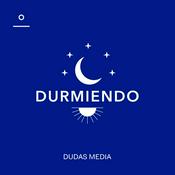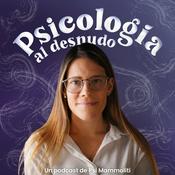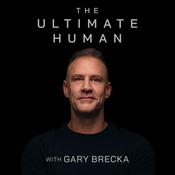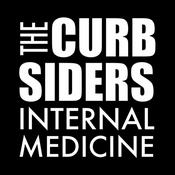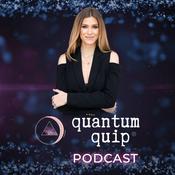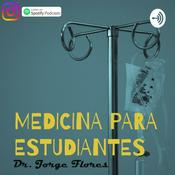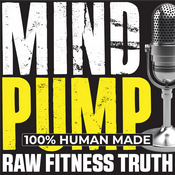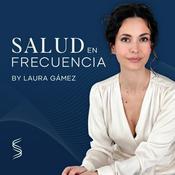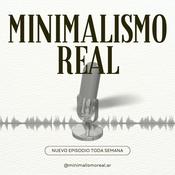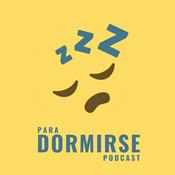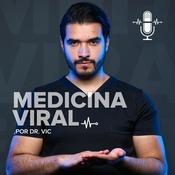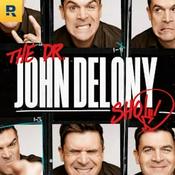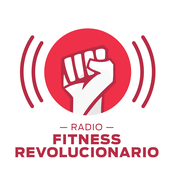268 episodios
- ¿Sabías que existe una conexión poderosa entre ejercicio físico y memoria?
En este episodio vamos a explorar cómo moverte puede ayudarte a recordar mejor, aprender más rápido y hasta proteger tu cerebro con el paso de los años.
Hablaremos de por qué el ejercicio general puede ser más efectivo que ciertos “ejercicios para la memoria” que se promocionan por ahí. Veremos el papel del BDNF, una proteína que funciona como fertilizante cerebral y que aumenta cuando te mueves.
Además, descubrirás por qué combinar ejercicio con buen sueño es un combo ganador para tu memoria, y cómo distintos tipos de entrenamiento, desde el aeróbico hasta el de resistencia, impactan de formas diferentes en tu capacidad de recordar.
También discutiremos un tema curioso: ¿es mejor entrenar antes o después de aprender algo nuevo? La ciencia tiene algunas pistas interesantes que podrían ayudarte a retener mejor la información.
Si quieres cuidar tu memoria a largo plazo, mejorar tu rendimiento académico o profesional, o simplemente entender por qué moverte no solo fortalece tus músculos sino también tu cerebro, este episodio es para ti.
Porque al final, entrenar no solo es para tener un cuerpo más fuerte, sino también una mente más afilada.
Atajos Del Episodio
02:23 - Ejercicio Físico Vs Ejercicios Específicos Para La Memoria
05:17 - BDNF y la memoria
07:14 - Ejercicio Acompañado De Buen Sueño: Un Combo Para Recordar
09:41 - El Impacto Del Ejercicio Aeróbico En La Memoria
12:42 - El Impacto Del Ejercicio De Resistencia En La Memoria
15:24 - Ejercicio Antes O Después De Aprender Algo Nuevo
19:30 - Conclusión - En lo último en salud y fitness edición de septiembre 2025, damos un paseo por las últimas tendencias, investigaciones y noticias en el mundo de la salud y el fitness.
En este episodio de octubre 2025, tenemos una mezcla interesante de descubrimientos que podrían cambiar pequeños hábitos de tu día a día con grandes resultados.
¿Alguna vez te has preguntado si el orden en que comes tus alimentos realmente importa? O quizás estés buscando una alternativa más efectiva para tu pre-entreno que no te cause ese incómodo nerviosismo. También exploraremos esa cifra mágica de pasos diarios que todos perseguimos y veremos si realmente necesitas llegar a los 10,000 para obtener beneficios.
Atajos Del Episodio
02:23 - El orden de los carbohidratos SÍ altera el producto (y tu glucosa)1
05:11 - El chicle que te da la superserie: Cafeína sin el bajón (ni el ardor)2 3
08:04 - ¿Ayuno o no ayuno? La única respuesta que importa es: ¿qué tipo de ayuno?4
12:10 - El gran mito de los 10,000 pasos: ¿7,000 son suficientes para vivir más?5
16:53 - El Gurú Digital: Cuando la IA supera al médico diseñando suplementos6
Referencias
1. Ferguson, B. P., Reynolds, L. J. & Haun…, C. T. Effects of ordered eating on blood glucose, substrate utilization, and perceptual responses with a steady-state exercise bout. Journal of Science and … (2025).
2. Ding, L. et al. Effect of Caffeinated Chewing Gum on Maximal Strength, Muscular Power, and Muscle Recruitment During Bench Press and Back Squat Exercises. Nutrients (2025).
3. Ding, L. et al. Caffeinated chewing gum produces comparable strength and power gains to capsules with fewer side effects in resistance-trained men. Journal of the … (2025).
4. Vieira, A. F., Blanco-Rambo, E. & Macedo…, R. C. O. Resistance training performed in the fasted state compared to the fed state on body composition and strength in adults: A systematic review with meta-analysis. Journal of Bodywork and … (2025).
5. Ding D, Nguyen B, Nau T, Luo M, Del Pozo Cruz B, Dempsey PC, Munn Z, Jefferis BJ, Sherrington C, Calleja EA, Hau Chong K, Davis R, Francois ME, Tiedemann A, Biddle SJH, Okely A, Bauman A, Ekelund U, Clare P, Owen K. Daily steps and health outcomes in adults: a systematic review and dose-response meta-analysis. Lancet Public Health. 2025 Aug;10(8):e668-e681. doi: 10.1016/S2468-2667(25)00164-1. Epub 2025 Jul 23. Erratum in: Lancet Public Health. 2025 Sep;10(9):e731. doi: 10.1016/S2468-2667(25)00199-9. PMID: 40713949.
6. Pokushalov, E., Garcia, C. & Ponomarenko…, A. Optimizing Weight Loss with Artificial Intelligence: A Randomized Controlled Trial of Dietary-Supplement Prescriptions in Adults with Overweight and Obesity. Clinical Nutrition … (2025). Podcast #266 - ¿Son Seguros los Suplementos Alimenticios? La Verdad Detrás de las Etiquetas
15/10/2025 | 19 minEn este episodio vamos a hablar sin filtros de una industria que mueve miles de millones de dólares cada año y que, aunque promete salud y rendimiento, también esconde riesgos que rara vez se mencionan.
Arrancamos cuestionando lo más básico: ¿los suplementos realmente contienen lo que dicen en la etiqueta? Puede sonar obvio, pero más de un análisis independiente ha encontrado discrepancias preocupantes.
Después, hablaremos del peligro latente en la industria de suplementos: falta de regulación, productos que salen al mercado demasiado rápido y fórmulas que no siempre son seguras.
También platicamos del porqué deberías pensarlo dos veces antes de lanzarte a probar cualquier suplemento “nuevo” y cuáles son las mejores prácticas si decides incluir alguno en tu rutina: desde verificar certificaciones hasta saber identificar señales de alerta.
Por supuesto, no podemos evitar la gran pregunta: ¿realmente necesitas suplementos para estar saludable? En algunos casos pueden ser útiles, pero en la mayoría de los escenarios, una buena alimentación y hábitos sólidos hacen mucho más que cualquier cápsula.
Atajos Del Episodio
02:17 - ¿Los Suplementos Contienen Lo Que Dicen Contener?
04:39 - El Peligro De La Industria De Suplementos
07:58 - Evita Consumir Suplementos Nuevos
12:00 - Mejores Prácticas Para Consumir Suplementos
14:40 - ¿Son Necesarios Los Suplementos?
17:33 - Conclusión
Referencias:
National Institutes of Health. Multivitamin/mineral Supplements. (2023).
Council for Responsible Nutrition. Dietary Supplement Use Reaches All Time High. (2023).
ConsumerLab. Collagen and Magnesium Rise in Popularity, as Fish Oil and Curcumin Dip in Latest ConsumerLab Survey of Supplement Users. (2020).
McCaskill, C., Casey, R. P. Memory Supplements: Results of Testing for Selected Supplements. U. S. Goverment Accountability Office (2018).
Cohen, P. A., Avula, B., Katragunta, K., Travis, J. C. & Khan, I. Presence and Quantity of Botanical Ingredients With Purported Performance-Enhancing Properties in Sports Supplements. JAMA network open 6, e2323879-e2323879 (2023).
National Center for Complementary and Integrative Health. Using Dietary Supplements Wisely. (2019).
News in Health. Should You Take Dietary Supplements? (2013).
Cohen, P. A., Wang, Y., Maller, G., DeSouza, R. & Khan, I. A. Pharmaceutical quantities of yohimbine found in dietary supplements in the USA. Drug testing and analysis 8, 357-369 (2016).
Gallardo, E. J. & Coggan, A. R. What is in your beet juice? Nitrate and nitrite content of beet juice products marketed to athletes. International journal of sport nutrition and exercise metabolism 29, 345-349 (2019).
Cohen, P. A., Travis, J. C., Vanhee, C., Ohana, D. & Venhuis, B. J. Nine prohibited stimulants found in sports and weight loss supplements: deterenol, phenpromethamine (Vonedrine), oxilofrine, octodrine, beta-methylphenylethylamine (BMPEA), 1, 3-dimethylamylamine (1, 3-DMAA), 1, 4-dimethylamylamine (1, 4-DMAA), 1, 3-dimethylbutylamine (1, 3-DMBA) and higenamine. Clinical Toxicology 59, 975-981 (2021).
Cohen, P. A., Wen, A. & Gerona, R. Prohibited stimulants in dietary supplements after enforcement action by the US Food and Drug Administration. JAMA internal medicine 178, 1721-1723 (2018).
Cohen, P. A., Maller, G., DeSouza, R. & Neal-Kababick, J. Presence of banned drugs in dietary supplements following FDA recalls. Jama 312, 1691-1693 (2014).
Cohen, P. A., Zakharevich, I. & Gerona, R. Presence of piracetam in cognitive enhancement dietary supplements. JAMA internal Medicine 180, 458-459 (2020).
Cenicola T. Older americans are ‘hooked’ on vitamins. The New York Times (2018).
Klemm, S. Vitamins Minerals and Supplements: Do You Need to Take Them? Academy of nutrition and dietetics (2020).
National Center for Complementary and Integrative Health. Vitamins and Minerals. (2023).- En lo último en salud y fitness edición de septiembre 2025, damos un paseo por las últimas tendencias, investigaciones y noticias en el mundo de la salud y el fitness.
Imagina un tratamiento capaz de reducir el riesgo de que el cáncer regrese en casi un 30%. Un tratamiento sin los efectos secundarios devastadores de la quimio, que además te hace más fuerte, te da más energía y es completamente gratis.
¿Y si te dijera que ese suplemento tan popular y caro que tienes en la despensa podría estar haciendo… bueno, prácticamente nada? ¿O que quizás estás sufriendo de más en el gimnasio para obtener los mismos resultados?
En esta edición de septiembre de 2025 vamos a hablar de cómo el ejercicio podría ayudar a personas que han pasado por cáncer de colon, la verdadera efectividad del colágeno, tu café matutino y hasta el protector solar.
Atajos Del Episodio
02:28 - El Arma Secreta que Ya Tienes Contra el Cáncer: Tu Propio Cuerpo1
04:38 - Colágeno Post-Entreno: ¿El Gran Engaño del Fitness?2
07:30 - Entrenar al Fallo: ¿Más Sufrimiento para los Mismos Resultados?3
10:10 - Tu Café Matutino: ¿Estás Anulando sus Beneficios?4
11:57 - El Falso Dilema: Protector Solar o Vitamina D. La Ciencia Responde5
Referencias:
1. Courneya, K. S., Vardy, J. L. & O’Callaghan…, C. J. Structured exercise after adjuvant chemotherapy for colon cancer. … England Journal of … (2025).
2. Aussieker, T., Kaiser, J., Hendriks, F. K. & Janssen…, T. A. H. The Effects of Ingesting a Single Bolus of Hydrolyzed Collagen versus Free Amino Acids on Muscle Connective Protein Synthesis Rates. Medicine & Science in … (2025).
3. Hermann, T., Mohan, A. E., Enes, A. & Sapuppo…, M. Without Fail: Muscular Adaptations in Single-Set Resistance Training Performed to Failure or with Repetitions-in-Reserve. Medicine & Science in … (2025).
4. Zhou, B., Ruan, M., Pan, Y., Wang, L. & Zhang, F. F. Coffee Consumption and Mortality Among US Adults: A Prospective Cohort Study. The Journal of Nutrition (2025).
5. Gatta, E. & Cappelli, C. Sunscreen and 25-hydroxyvitamin D vitamin D levels: friends or foes? Systematic review and meta-analysis. Endocrine Practice (2025). - Los beneficios de entrenar femorales van mucho más allá de tener piernas que se vean proporcionadas. Estos músculos cumplen un rol clave en tu fuerza, tu postura y hasta en la prevención de lesiones que pueden dejarte fuera de juego por semanas.
En este episodio vamos a hablar de por qué los femorales merecen más atención de la que solemos darles. Veremos cómo se relacionan con el rendimiento físico, la salud de tus articulaciones y, claro, la estética de unas piernas bien construidas.
También platicaremos sobre la ciencia detrás de un buen entrenamiento de femorales, y cómo un enfoque correcto puede marcar la diferencia entre progresar… o quedarte estancado. Y no, no se trata de complicarte con rutinas imposibles, sino de entender qué hace falta para estimularlos de forma efectiva.
Si buscas entrenar con estrategia, mejorar tu rendimiento y evitar problemas que tarde o temprano llegan cuando ignoramos este grupo muscular, este episodio es para ti.
Atajos Del Episodio
02:05 - La Importancia De Los Isquiotibiales
04:17 - Anatomía De Los Músculos Femorales
06:36 - La Ciencia Detrás De Un Entrenamiento Efectivo De Femorales
11:55 - Los Mejores Ejercicios Para Femorales
15:03 - La Progresión: Tu pasaporte al crecimiento muscular ?️
16:02 - Cómo Armar Una Rutina De Femorales
20:32 - Conclusión
Más podcasts de Salud y forma física
Podcasts a la moda de Salud y forma física
Acerca de El Arte y Ciencia Del Fitness
El podcast de vitalitica.com, donde el arte y la ciencia del fitness se unen para darte la mejor información sobre cómo esculpir tu cuerpo de la manera más flexible y eficiente posible. Seas hombre o mujer, en este podcast encontrarás la información más acertada para mejorar tu salud y verte increíble.
Sitio web del podcastEscucha El Arte y Ciencia Del Fitness, VE A TERAPIA y muchos más podcasts de todo el mundo con la aplicación de radio.net
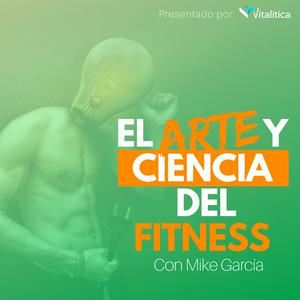
Descarga la app gratuita: radio.net
- Añadir radios y podcasts a favoritos
- Transmisión por Wi-Fi y Bluetooth
- Carplay & Android Auto compatible
- Muchas otras funciones de la app
Descarga la app gratuita: radio.net
- Añadir radios y podcasts a favoritos
- Transmisión por Wi-Fi y Bluetooth
- Carplay & Android Auto compatible
- Muchas otras funciones de la app


El Arte y Ciencia Del Fitness
Escanea el código,
Descarga la app,
Escucha.
Descarga la app,
Escucha.




